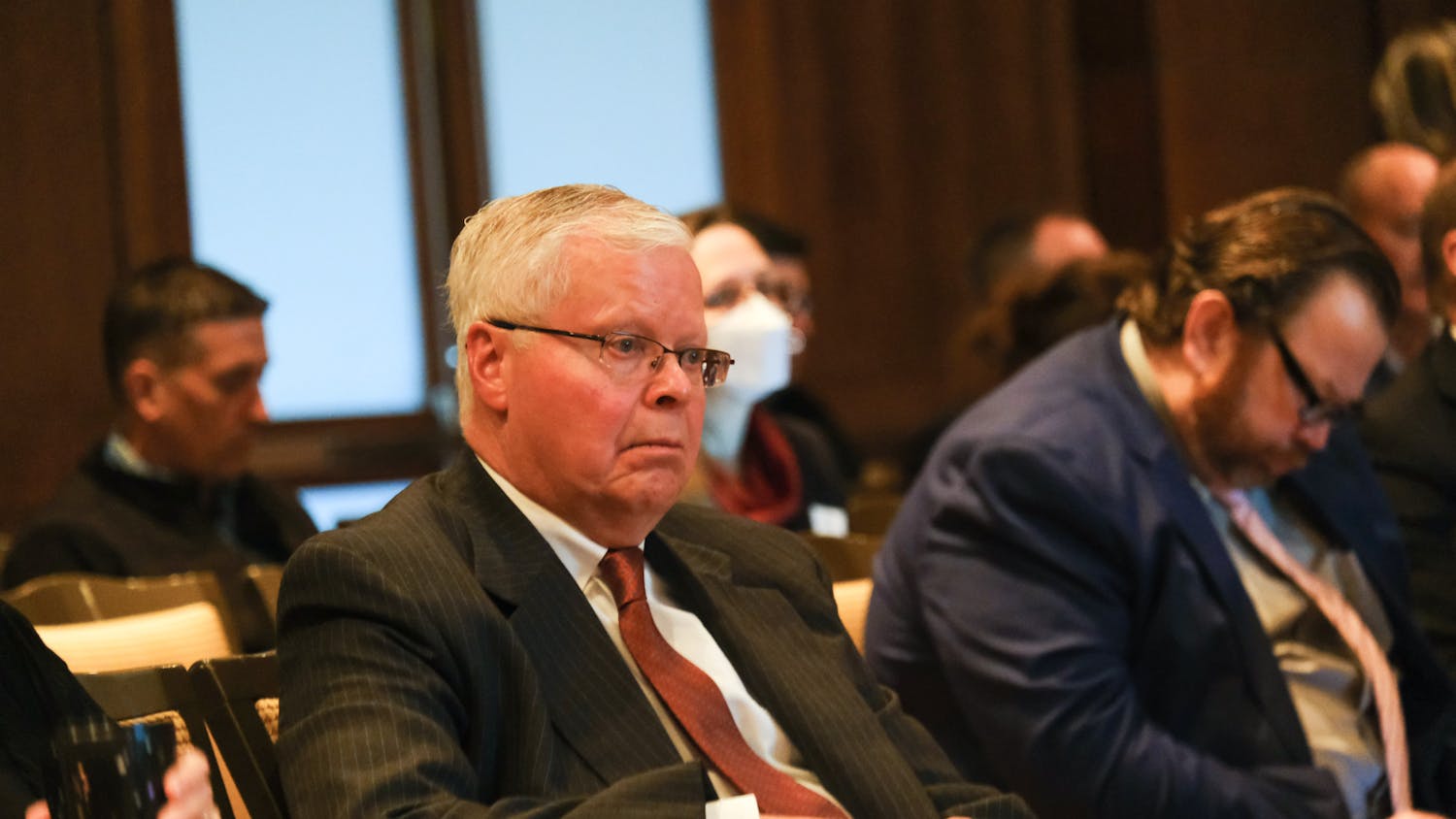More than 230 University of Wisconsin-Madison faculty, staff and graduate students signed a Dec. 21 letter opposing conflating critiques of Zionism and Israel with antisemitism amid the Israel-Hamas war.
“A failure to distinguish antisemitism from criticism of Israel obstructs the ability of colleges and universities to educate and facilitate important civic discourse. It also interferes with our fight against true antisemitism,” the statement read.
The letter, titled “Criticism of Israel is not Antisemitic,” said colleges and universities face challenges in distinguishing what constitutes antisemitism and in separating antisemitism from anti-Zionism.
Letter signees warned “bigotry and hatred” toward specific racial or religious groups is “never part of a healthy discourse.”
“But if criticism of Israel is defined as antisemitic speech, then we will silence all critique of that state — including voices about Palestinian self-determination and human rights,” the statement read.
The letter was sent to Chancellor Jennifer Mnookin and various UW-Madison administrators, along with a request to meet for further discussion. More than 175 faculty and staff from 59 different UW-Madison departments, along with 49 graduate students, signed the statement, according to the statement’s connected website.
Samer Alatout, a Palestinian associate professor of Community and Environmental Sociology at UW-Madison who has spoken publicly about the challenges Palestinian students face, told The Daily Cardinal a group of Arab and Muslim professors drafted the letter to protect students’ freedom of speech. UW-Madison administrators have not responded to the letter, according to Alatout.

“We want to work with the university in order to figure out how to appropriately make the environment peaceful to protect the students, whether they are, of course, pro-Palestine or pro-Israel, or whoever it is, just to have a civil discourse,” Alatout said.
Questions about free speech have taken center stage on university campuses in the months since the war’s start. University of Pennsylvania President Elizabeth Magill and Harvard University President Claudine Gay resigned after receiving intense pushback for their testimony in a congressional hearing, in which they evaded answering whether students who called for the genocide of Jews should be disciplined.
Meanwhile, Brandeis, Columbia, George Washington and Rutgers were among the institutions that temporarily suspended campus chapters of Students for Justice in Palestine.
Hamas’ Oct. 7 terrorist attack killed 1,200 Israelis and foreigners and took 240 people hostage in the deadliest massacre in the country’s history. Since then, 25,000 Palestinians have been killed as part of Israel’s retaliatory bombing and ground invasions. Roughly 85% of Gaza's residents have been displaced.
Signatories said the letter was motivated by an alarming rise in “harassment and intimidation of students who criticize Israel.” At times, this harassment invoked Islamophobic tropes while painting speech against Israel as supporting terrorism or violence.
In some of these instances, pro-Israel advocates have pointed out that their issue is not with pro-Palestinian advocacy but with how Hamas’ actions on Oct. 7 — during which there was documented evidence of sexual violence — were painted as “resistance” or “liberation.”
Amanda Peterson, a UW Hillel student board member, agreed criticizing Israel isn’t antisemitic. But when criticism of Zionism uses antisemitic tropes, such as Holocaust comparisons or blood libel, she said Jewish students can be left uncomfortable.
“There are certain phrases that have antisemitic tropes without people realizing it. For instance, I think a lot of times when people say ‘they have blood on their hands’ I think of blood libel,” Peterson said.
The blood libel trope refers to false allegations dating back to the Middle Ages that Jews murder Christians and use their blood for rituals, a trope that has led to violent pogroms.
Antisemitism and Islamophobia have spiked in the months following the Israel-Hamas war, with a stark increase in incidents on college campuses.
In November, a group of neo-Nazis marched from UW-Madison through downtown waving swastika flags, giving Nazi salutes and chanting antisemitic rhetoric and threats, including “Israel is not our friend” and “there will be blood.” In the same month, two individuals harassed members of the Sigma Psi Zeta sorority with racist anti-Asian and anti-Arab language in a campus building.
A group of neo-Nazis also incited fear at the University of Wisconsin-Whitewater on Jan. 22 when they projected a swastika onto a dormitory and chanted “We are everywhere. There will be blood, blood, blood.”
Reports of incidents have also popped up at institutions around the country. At Harvard University, a doxxing campaign organized a truck to drive around campus showing the names of pro-Palestine Harvard students who signed onto a controversial letter that held "the Israeli regime entirely responsible for all unfolding violence” since Oct. 7.
Columbia University canceled class on Nov. 1 after a Cornell student posted antisemitic threats to slit the throats of Jewish students on campus and to rape and kill Jewish women. Three Palestinian students at the University of Vermont wearing keffiyehs were shot over Thanksgiving weekend.
Two prominent U.S. law firms revoked jobs for law students at Harvard, Columbia and New York University who signed onto similar statements expressing “unwavering and absolute solidarity with Palestinians in their resistance against oppression toward liberation and self-determination."
On a national level, the Anti-Defamation League in December reported a 337% increase in reported antisemitic incidents since Oct. 7, with more than 2,000 incidents tabulated. The Council on American-Islamic Relations in the initial month after Oct. 7 reported an “unprecedented” 216% increase in anti-Muslim and anti-Palestinian bias, with 1,283 requests for help and reports of bias documented.
Editor's note: This article was updated at 12:33 p.m. on Jan. 29, 2024 to reflect that staff, students and faculty were all signatories of the letter.
Rachel Hale is a senior staff writer who covers state politics and campus events. Before getting involved with The Daily Cardinal, she was a culture editor at Moda Magazine. Follow her on Twitter at @rachelleighhale.






